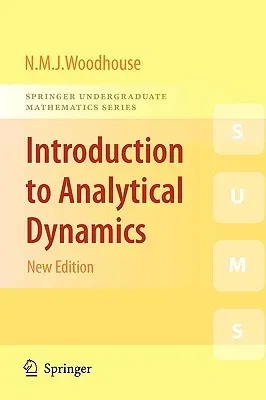Analytical dynamics forms an important part of any undergraduate
programme in applied mathematics and physics: it develops intuition
about three-dimensional space and provides invaluable practice in
problem solving.
First published in 1987, this text is an introduction to the core ideas.
It offers concise but clear explanations and derivations to give readers
a confident grasp of the chain of argument that leads from Newton's laws
through Lagrange's equations and Hamilton's principle, to Hamilton's
equations and canonical transformations.
This new edition has been extensively revised and updated to include:
- A chapter on symplectic geometry and the geometric interpretation of
some of the coordinate calculations.
- A more systematic treatment of the conections with the phase-plane
analysis of ODEs; and an improved treatment of Euler angles.
- A greater emphasis on the links to special relativity and quantum
theory, e.g., linking Schrödinger's equation to Hamilton-Jacobi
theory, showing how ideas from this classical subject link into
contemporary areas of mathematics and theoretical physics.
Aimed at second- and third-year undergraduates, the book assumes some
familiarity with elementary linear algebra, the chain rule for partial
derivatives, and vector mechanics in three dimensions, although the
latter is not essential. A wealth of examples show the subject in action
and a range of exercises - with solutions - are provided to help test
understanding.


